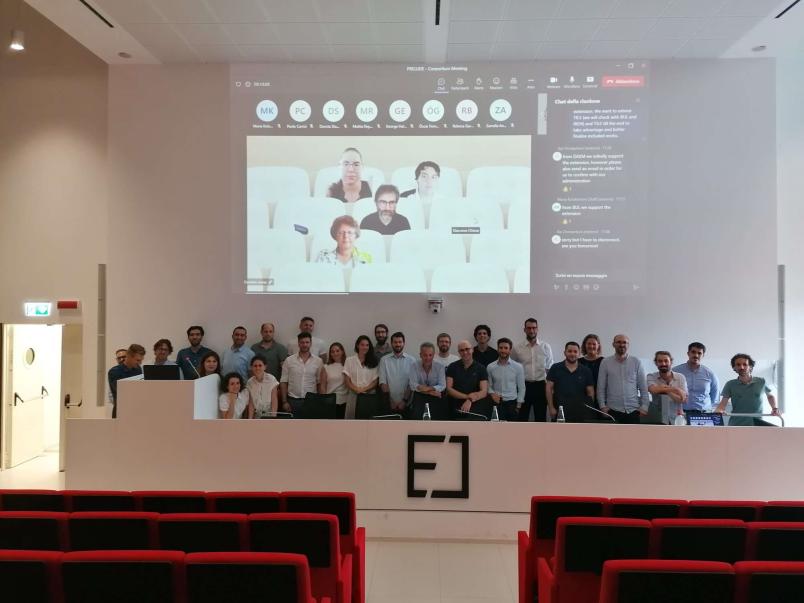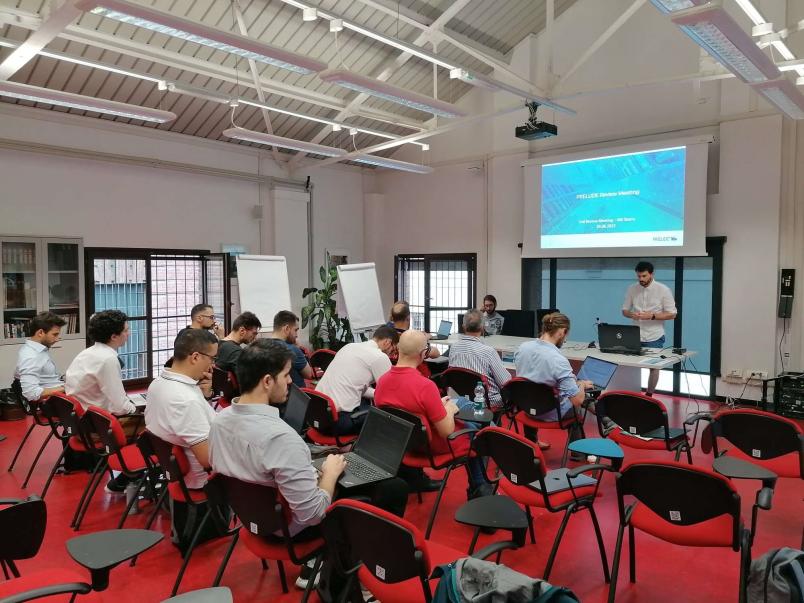
Research into innovative and proactive smart-building solutions continues at the Politecnico

POLITO hosted in hybrid mode at the Energy Center Auditorium the M31 consortium meeting of the PRELUDE project – Prescient building Operation utilizing Real Time data for Energy Dynamic Optimization – that received funds from the European Union’s Horizon 2020 research and innovation programme under Grant Agreement N° 958345 (Call identifier: LC-EEB-07-2020).
The project aims to support advanced innovative, smart, low-cost solutions supporting intelligent buildings and proactive optimisation services. Among the others, the project pursues the minimisation of energy uses, the maximisation of self-consumption and renewable sources balance, and the improvement of comfort conditions supporting the maximisation of free-running building potentials.
The PRELUDE project started at the end of 2020 and is now in its third year of activities advancing technology testing inside demonstrators and the project-correlated living lab.

On the 27 and 28 of June, the project participants had a consortium meeting at the Auditorium of the Energy Center of the POLITO – hosted by Professor Giacomo Chiesa by the Department of Architecture and Design – to discuss project advancements, integration of developed technologies inside demo buildings around Europe and to prepare the next project year works facing indoor comfort optimisation, proactive building management supporting automatic and self-actuation forecasting strategies considering building operation, maintenance and retrofitting.
The meeting is followed by the second project review meeting, hosted at POLITO, Castello del Valentino, on the 29th of June. In parallel to the meeting, the POLITO team also organised a poster exhibition showing the initial results of the educational activities managed inside Task 9.5 – educational and citizen-science activities – that involves students from Architecture and ICT4SS master degrees, developing simulation and IoT monitoring solutions for smart buildings and building compounds.